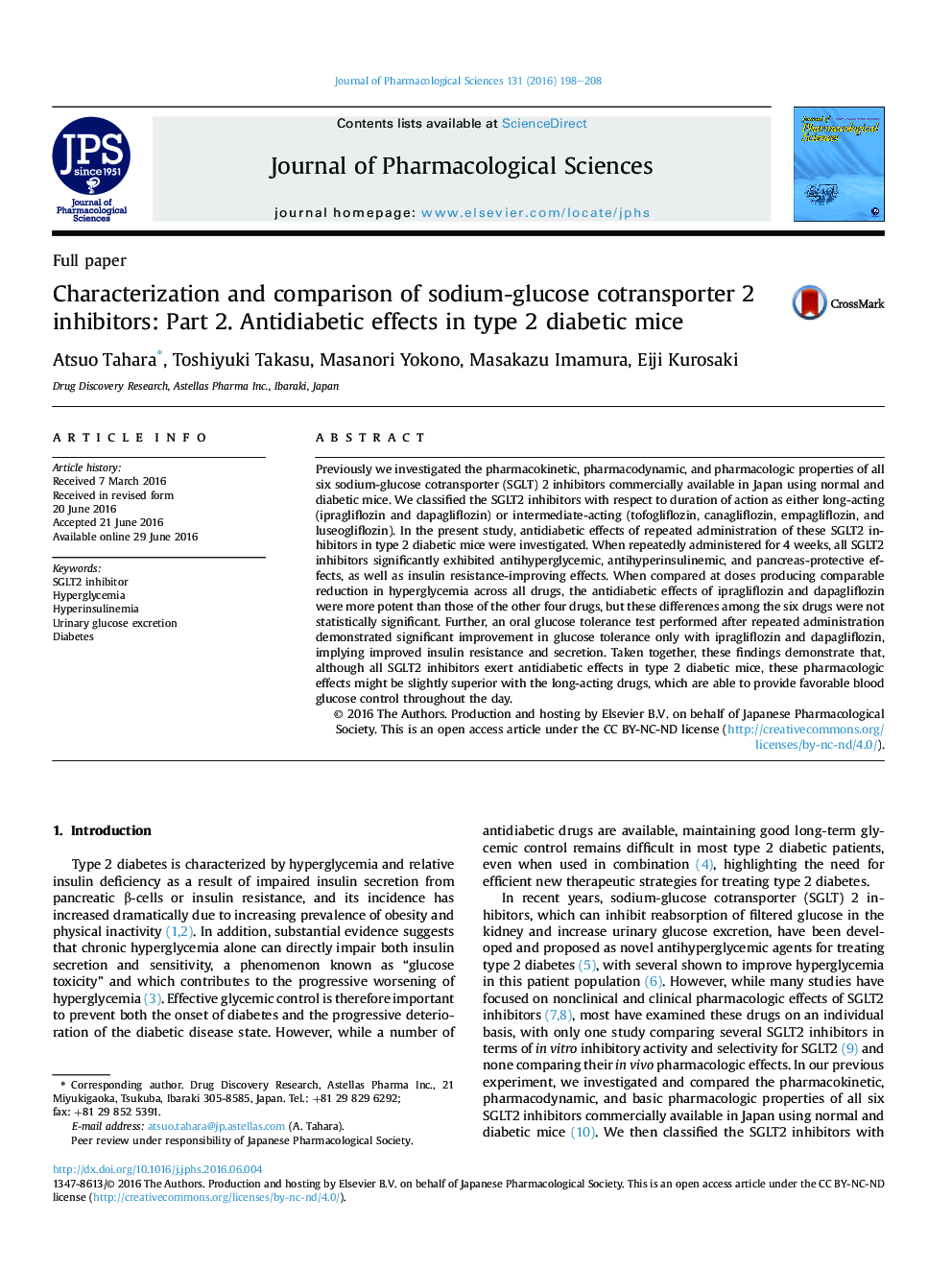| Article ID | Journal | Published Year | Pages | File Type |
|---|---|---|---|---|
| 2548695 | Journal of Pharmacological Sciences | 2016 | 11 Pages |
Previously we investigated the pharmacokinetic, pharmacodynamic, and pharmacologic properties of all six sodium-glucose cotransporter (SGLT) 2 inhibitors commercially available in Japan using normal and diabetic mice. We classified the SGLT2 inhibitors with respect to duration of action as either long-acting (ipragliflozin and dapagliflozin) or intermediate-acting (tofogliflozin, canagliflozin, empagliflozin, and luseogliflozin). In the present study, antidiabetic effects of repeated administration of these SGLT2 inhibitors in type 2 diabetic mice were investigated. When repeatedly administered for 4 weeks, all SGLT2 inhibitors significantly exhibited antihyperglycemic, antihyperinsulinemic, and pancreas-protective effects, as well as insulin resistance-improving effects. When compared at doses producing comparable reduction in hyperglycemia across all drugs, the antidiabetic effects of ipragliflozin and dapagliflozin were more potent than those of the other four drugs, but these differences among the six drugs were not statistically significant. Further, an oral glucose tolerance test performed after repeated administration demonstrated significant improvement in glucose tolerance only with ipragliflozin and dapagliflozin, implying improved insulin resistance and secretion. Taken together, these findings demonstrate that, although all SGLT2 inhibitors exert antidiabetic effects in type 2 diabetic mice, these pharmacologic effects might be slightly superior with the long-acting drugs, which are able to provide favorable blood glucose control throughout the day.
